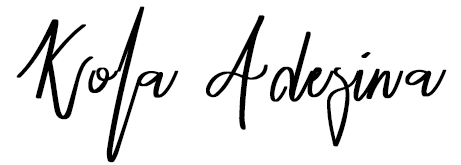According to research conducted by Forbes Magazine,
founders and CEOs who decide to write a book often start the process by
answering the “why” question. In other words, they try to explicitly
state and analyze their reasons for engaging in the writing process. After all,
endeavoring in a book-writing process means spending countless hours typing,
editing, proofreading, erasing, modifying, and researching for a low chance of
earning a substantial profit.
Dr. Jan McBarron, the founder and 31-year-old veteran of a private
medical bariatric practice from
Nevada, is a prime example of a writer whose reasons boil down to passion. With
three published books, she is a long-time author whose most popular book,
“Curcumin: The 21st Century Cure,” helped hundreds of readers. So,
what exactly was it like for her and all others who wrote books and got
published for the first time?
Challenging Yet Fulfilling
The fact that writing is challenging is not really a secret. What comes as a surprise to many individuals, however, is the actual degree of difficulty that many authors face when creating lengthy works. Outside of the typical exhaustion that accompanies one throughout most of their creative sessions, there is also something known as the “burnout” effect. In simple terms, it is an inability to resume the writing process altogether and often forces folks to halt their venture. Finding a way to sidestep that burnout can be extremely challenging.
Luckily, the adversity that comes with the writing process is paired with an equal amount of fulfillment. This is especially true for those who find ways to overcome difficult challenges and complete important pages, chapters, or the book itself. After all, not much can match the feeling of joy and accomplishment that the writer reaches when they make the last edit on their book.
Time Consuming Yet Everlasting
While it is obviously going to range based on the type of writing, the number of pages, and one’s experience, the average time to write a book often falls somewhere between two and seven months. Of course, there are many pieces that took a lot longer. “Gone with the Wind” by Margaret Mitchel or “Sphere” by Michael Crichton, per se, took 10 and 20 years to finish, respectively. So, although the actual time frame will depend on the author, it is perfectly clear that a book-writing process is a very time-consuming one.
Regardless, most successful authors tend to see their writing as everlasting. That means that they are thrilled at the prospect of having to write for a long time. Given their deeply instilled passion, the time-consuming venture will only motivate them to push their creativity and writing abilities to the next level. So, writing a book can also be fairly portrayed as excitingly drawn-out.
Unexpectedly and Usefully Demanding
Besides the aforementioned difficulties, authors are going to face a long list of other challenges tied to the publishing process. Outside of those who are willing to self-publish and invest their own capital into their work, everyone will have to find a professional company to help them launch their book. Although an expert doctor in bariatric medicine, even Dr. Jan McBarron (Duke and The Doctor) had to learn a few unexpected skills to get published. The reason why is the fact that the writing industry is extremely competitive. Just consider the mind-boggling fact that the U.S. alone is responsible for anywhere from 600,000 to 1,000,000 new books every year. Approximately half of those works end up getting self-published. Not to mention all the books that never get released to the market due to the writers’ struggles with finding someone who will help them overcome the barriers to entry.
This is why most writers undergo an unexpectedly demanding process of learning how to navigate the administrative side of things, effectively present themselves to publishers, promote their book, and similar. Fortunately, however, every tangible and intangible skill that they acquire here will be very useful. Learning how to network and work with publishers, for instance, is transferrable to all subsequent books and projects. Thus, going through the wringer once will be incredibly advantageous to the writer’s long-term success.
Yearning for More
After finally finishing the entire process, most authors have a lingering sensation that almost feels as if they have hit a plateau. In translation, the sense of accomplishment that stems from the finalized book is usually mixed with unprecedented mental depletion. What surprises most people, however, is the fact that authors seldom react to this by taking a long time off from their writing. On the contrary, regardless of how unpleasant the sense of tiredness may be, it tends to leave them wanting more. Having experienced the entirety of the creation and publishing procedure, many writers cannot wait to go back and do the same thing again. Hence why Dr. Jan McBarron and millions of other authors do not stop after finishing their first book.

